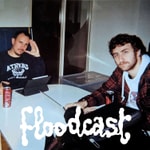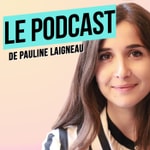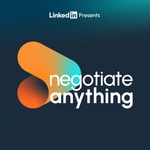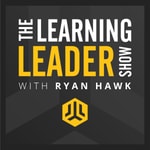The Human Risk Podcast – Details, episodes & analysis
Podcast details
Technical and general information from the podcast's RSS feed.
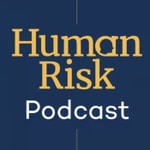
The Human Risk Podcast
Human Risk
Frequency: 1 episode/6d. Total Eps: 339

Recent rankings
Latest chart positions across Apple Podcasts and Spotify rankings.
Apple Podcasts
🇬🇧 Great Britain - socialSciences
28/07/2025#33🇬🇧 Great Britain - socialSciences
27/07/2025#27🇬🇧 Great Britain - socialSciences
26/07/2025#32🇬🇧 Great Britain - socialSciences
25/07/2025#50🇬🇧 Great Britain - socialSciences
24/07/2025#31🇬🇧 Great Britain - socialSciences
23/07/2025#57🇬🇧 Great Britain - socialSciences
22/07/2025#39🇬🇧 Great Britain - socialSciences
21/07/2025#25🇬🇧 Great Britain - socialSciences
20/07/2025#20🇬🇧 Great Britain - socialSciences
19/07/2025#35
Spotify
No recent rankings available
Shared links between episodes and podcasts
Links found in episode descriptions and other podcasts that share them.
See all- https://www.instagram.com/p
11467 shares
- https://www.instagram.com/fotiniicon
12 shares
- https://jamesclear.com/atomic-habits
569 shares
- https://ouraring.com/
546 shares
- https://www.tonyrobbins.com/
368 shares
RSS feed quality and score
Technical evaluation of the podcast's RSS feed quality and structure.
See allScore global : 53%
Publication history
Monthly episode publishing history over the past years.
Sharon O'Dea on Navigating the Digital Workspace
vendredi 30 août 2024 • Duration 01:02:13
Sharon brings her wealth of experience in digital communications and workplace strategies to the table, sharing insights on how organizations can leverage technology to enhance employee performance and mitigate human risk.
The conversation delves into the practical challenges of managing digital workplaces, from AI integration to the complexities of remote work.
Sharon also offers personal anecdotes, including her unique experiences in Iraq and Amsterdam, shedding light on how geography can shape one’s professional journey.
You'll hear about the importance of effective communication, the risks of poor digital practices, and the evolving work landscape in a post-pandemic world.
Guest Biography
Sharon is the co-founder of Lithos Partners, a boutique consultancy that specializes in digital workplace strategies and internal communications.
With a career that spans several years in communications, Sharon has a rich background in digital transformation and helping organisations navigate the complexities of the modern workplace. Her work includes guiding companies in optimising digital employee experiences, managing organisational data, and adopting effective communication practices in an increasingly digital world.
On her official website, Sharon describes herself as a digital strategist passionate about using technology to enhance human potential.
Beyond her professional achievements, she is known for her engaging social media presence, sharing insights on digital work, remote working, and her experiences living in Amsterdam.
AI-Generated Timestamped Summary
[00:00:00] Introduction to the episode and guest Sharon O'Dea.
[00:01:00] Sharon discusses her work at Lithos Partners and her focus on digital workplace strategies.
[00:02:00] Sharon's experience in Iraq working with the fledgling Iraqi Parliament.
[00:04:00] Challenges of digital communication and collaboration in a sectarian context.
[00:06:00] Sharon’s move to Amsterdam and how the city influences her work and life.
[00:10:00] The importance of intentional communication in remote work environments.
[00:16:00] Discussion on AI note-takers and the risks they pose in workplace communication.
[00:20:00] Challenges of managing organizational data in a digital workplace.
[00:28:00] The debate over remote work versus returning to the office.
[00:32:00] The role of technology in building workplace connections and engagement.
[00:39:00] How to create value in the digital workplace and avoid bad digital practices.
[00:44:00] The evolving expectations for digital experiences in the workplace.
Links
Sharon's website: https://sharonodea.com/
The Week Note that covers this episode: https://sharonodea.com/2024/08/25/weeknote-2024-34/
Sharon on LinkedIn: https://www.linkedin.com/in/sharonodea/
Sharon's (now retired) account on Twitter/X: https://twitter.com/sharonodea
Announcing the Decision-Making Studio Podcast
mardi 27 août 2024 • Duration 05:49
If you’re a regular listener to the show, you’ll know that it’s all about the risks of human decision-making.
I try to bring you guests who can help us to better understand them and what we can do to mitigate them.
One of those guests is Ben Cattaneo, the host of his own podcast, which was one of the inspirations for this show.
Ben’s show used to be called The All Things Risk podcast, but he recently rebranded it to The Decision-Making Studio podcast.
To mark this he launched what he calls an ‘inbetweenisode’ — a short explainer show — on his channel. It's done with his trademark honesty, insightfulness and a touch of humour.
If you’re listening to this show, then chances are you’ll find Ben’s show interesting.
So, I thought I’d let Ben take over this channel to share why he’s changing the show’s name and breaking up with risk.
You’ll find the show on all the usual podcast platforms.
Further information and links: https://thedecisionmaking.studio/podcast
To hear Ben’s previous appearances on this show:
Ben on Decision-making (April 2024): https://www.humanriskpodcast.com/ben-cattaneo-on-decision-making-part-two/
Ben on All Things Risk (March 2020): https://www.humanriskpodcast.com/ben-cattaneo-on-all-things/
A cross-cast of this show and the All Things Risk podcast (April 2020): https://www.humanriskpodcast.com/all-things-human-risk-crosscast/
Paul Orlando on 'Why Now?' - how good timing makes great products
dimanche 23 juin 2024 • Duration 01:03:15
On this episode, we welcome back Paul Orlando, an expert on unintended consequences and systems thinking.
Paul introduces his new book, "Why Now: How Good Timing Makes Great Products," and discusses the pivotal role timing plays in the success of startups and innovation.
Through historical examples and modern-day insights, Paul explains how to identify the right moment for launching new ventures and the frameworks he developed for timing analysis.
Bio
Paul is a seasoned entrepreneur, advisor, and author, known for his expertise in unintended consequences and systems thinking. 'Why Now' explores the crucial aspect of timing in innovation.
Summary of Key Points:
- 00:00: Introduction and welcome back to Paul Orlando.
- 01:00: Paul's shift from unintended consequences to the topic of timing.
- 02:00: The significance of timing in startup success.
- 05:00: Historical examples of timing, including AT&T and mobile telephony.
- 10:00: Frameworks and methodologies for analyzing timing.
- 14:00: Case study of YouTube and earlier attempts at video streaming.
- 20:00: The role of social and behavioral changes in timing.
- 30:00: How businesses can apply timing analysis in decision-making.
- 35:00: Personal reflections on the impact of timing on life and work.
Links
Paul's book: 'Why Now: How Good Timing Makes Great Products' - https://www.amazon.com/Why-Now-Timing-Makes-Products/dp/B0CYXSNMT3
Paul's website: https://startupsunplugged.com/
Paul's previous appearance on the show on Unintended Consequences: https://www.humanriskpodcast.com/paul-orlando-on-unintended-consequences/
Rory Sutherland & Paul Craven on Alchemy & Magic
vendredi 19 août 2022 • Duration 52:48
Rory is also the Vice Chairman of Ogilvy, and Paul began his career in Finance with over 30 years working for Schroders, PIMCO and Goldman Sachs. Both are Behavioural Science thought leaders.
Since the show is approaching its 200th episode — this is the 199th — I thought I ought to celebrate it. So I did what we always do when we celebrate special occasions and decided to replicate the winning formula I used last time. On that occasion, I was joined by Rory Sutherland and Gerald Ashley. Since then, I’ve also recorded a doubleheader with Gerald and his and Rory’s good friend Paul Craven. Like Rory and Gerald, Paul has also done a solo appearance on the show. So for two episodes, I’m joined by Rory Sutherland and Paul Craven.
In our discussion — and I’m just talking about this episode here — we talk about framing, ethics, Sludge, electric cars, the best joke at this year’s Edinburgh festival — warning, it’s an adult joke — the Pratfall Effect, or why making mistakes can make us seem more human, ho one man saved the world from a nuclear war, the Beatles, how we look at data and so much more. Links to all of those are below.
Paul Craven - https://www.paulcraven.com/
Rory Sutherland - https://www.linkedin.com/in/rorysutherland/?
Rory’s book Alchemy - https://www.penguin.co.uk/books/430379/alchemy-by-rory-sutherland/9780753556528
Economist Nicholas Gruen - https://en.wikipedia.org/wiki/Nicholas_Gruen
French magician Jean-Eugène Robert-Houdin - https://en.wikipedia.org/wiki/Jean-Eug%C3%A8ne_Robert-Houdin
Former guest Gerald Ashley referring to Paul as a conman - https://twitter.com/HumanRiskLtd/status/1395316840105234432?s=20&t=7v2vbVi0FoiyzozKY9soug
Marks & Spencer’s ‘Dine In For Two’ Deal - https://www.marksandspencer.com/c/food-to-order/dine-in
Edward De Bono - https://www.debono.com/ Germany’s ’two click to unsubscribe’ law - https://www.thelocal.de/20220303/how-germany-is-making-is-easier-for-consumers-to-cancel-contracts/
Sludge - https://www.forbes.com/sites/rogerdooley/2021/09/29/you-cant-nudge-if-youve-got-sludge/
[Warning: the most controversial show note ever. Contains adult content.
Spanish Comedian Ignacio Lopez on Dogging.
Here’s what the term means: https://en.wikipedia.org/wiki/Dogging_(sexual_slang)].
Here’s the joke: https://www.facebook.com/watch/?v=246981890669484
The BBC series My Life As A Rolling Stone - https://www.bbc.co.uk/programmes/m0018zwp
To hear previous episodes of the show featuring:
Paul - https://www.humanriskpodcast.com/paul-craven-on-magic-money/
Rory - https://www.humanriskpodcast.com/rory-sutherland-on-compliance/
Rory & Gerald Ashley Part One - https://www.humanriskpodcast.com/rory-sutherland-gerald-ashley/
Rory & Gerald Ashley Part Two - https://www.humanriskpodcast.com/gerald-ashley-rory-sutherland/
Paul & Gerald Ashley Part One - https://www.humanriskpodcast.com/gerald-ashley-paul-craven/
Paul & Gerald Ashley Part Two - https://www.humanriskpodcast.com/paul-craven-gerald-ashley/
Professor Yuval Feldman on Trust & Voluntary Compliance
samedi 13 août 2022 • Duration 01:08:30
This episode sees the return of the very first guest I ever had on the podcast, Professor Yuval Feldman of Bar-Ilan University in Israel. I asked Yuval to help me launch the show because his book “The Law Of Good People’ was a major influence on my human risk work. So, as we approach the 200th episode of the show, I wanted to get him back to
say thank you for all that he’s inspired and because I know that COVID has provided him with some amazing opportunities to further his research. Not only has he been helping the Israeli government to manage its response to the pandemic, but he’s also been able to find ways to use live under COVID as a large-scale field experiment.
In the show, we talk about the lessons Yuval has learned from his work during COVID, and his new book on Public Trust. He also shares his insights into his own experiences of compliance. We also discuss the project for which he was recently awarded European Research Council Grant on the subject of "Generating Voluntary Compliance Across Doctrines and Nations: Integrating the Behavioural and Regulatory Aspects of Governments’ Ability to Trust the Public’s Cooperation, Ethicality and Compliance"
Links to issues we discuss:
Yuval’s first appearance on the show - https://www.humanriskpodcast.com/professor-yuval-feldman-on-why/
His book ‘The Law of Good People’ - https://www.cambridge.org/core/books/law-of-good-people/DEB07C540F75D5D3B0A53B2499722F70
His faculty webpage - https://law.biu.ac.il/en/feldman
Professor Katy Milkman of Wharton - https://www.katymilkman.com/
Responsive Regulation by Ian Ayres & John Braithwaite - http://johnbraithwaite.com/wp-content/uploads/2016/06/Responsive-Regulation-Transce.pdf
Personalised Law by Omri Ben-Shahar & Ariel Porat - https://global.oup.com/academic/product/personalized-law-9780197522813?
The blog by writer Ian Leslie that explores why Diversity & Inclusion teams should include people that don’t agree with D&I - https://ianleslie.substack.com/p/down-with-pronouns?
You can hear Ian’s appearance on this show here - https://www.humanriskpodcast.com/ian-leslie-on-conflict-/
The research project Yuval did with Maryam Kouchaki and Francesca Gino about how the choice of language in a code of conduct impacts people’s responses to it- https://www.hbs.edu/faculty/Pages/item.aspx?num=56179
Details of his European Research Grant - https://www.biu.ac.il/en/article/11123
Phil Libin on The Out of Office World
lundi 8 août 2022 • Duration 01:00:49
My guest, Phil Libin, is an experienced CEO with some fascinating insights to share on what he calls ‘The Out Of Office World’. He’s the former CEO of Evernote and the co-founder and CEO of All Turtles, a product studio that solves what they describe as meaningful problems.
I first came across All Turtles when looking for a solution to make video presentations more engaging. In 2020, they launched a product called mmhmm which, in their words — and I’d agree — gives you ‘communication superpowers’. I’ve been using it ever since.
While our discussion begins with mmhmm, it’s the story of what the software inspired that I find really interesting. Because when All Turtles began using it internally, they also discovered a more effective way of working. What mmhmm inspired was the recognition that the perception we all have of video as a poor substitute for ‘in person’ meetings is wrong. There are certain activities that can be improved by the use of video — particularly asynchronous video — and recognising that ‘face to face’ time is so valuable means changing how we use that time. As Phil points out, he’s not created a blueprint for how all companies should think about working; it’s what works for them. But the ideas behind it are something that can inspire all companies.
To find out more about All Turtles, visit — https://www.all-turtles.com/
For mmhmm, the app that gives you ‘communication superpowers’ - https://www.mmhmm.app/home
The demo that I did of how I use mmhmm is here: https://www.mmhmm.app/blog/christian-hunt-compliance-expert
All Turtles also produces some fascinating videos and podcasts on the Out of Office World. Here’s a video that explains the philosophical underpinnings of their approach - https://www.youtube.com/watch?v=mBKIMhGO8WA
I also recommend watching the mmhmm ‘Degrees of Freedom’ video podcast: https://www.youtube.com/watch?v=AHL6dBk6wAE
Professor Viswanathan Raghunathan on being Irrationally Rational
mercredi 3 août 2022 • Duration 56:47
Raghu,as he likes to be known. is the author of a new book called ‘Irrationally Rational: Ten Nobel Laureates script the story of Behavioural Economics’ which (unsurprisingly!) looks at the development of Behavioural Economics,through the work of ten Nobel laureates.
In an engaging narrative Raghu explores what each of them brought to the field and how their work is relevant in the modern world.
In our discussion we explore:
- Raghu’s interest in Behavioural Economics
- How he came to write the book
- The rationale for choosing the lens of Nobel laureates to review the field
- How he went about selecting stories and anecdotes that would make the work of the Laureates relevant to a 2022 audience
- The growth of Behavioural Science in India and what we can learn from that
- The challenges of implementing BeSci in India
- His plans for the future
To find out more about Raghu visit his website: http://www.vraghunathan.com/
To order the book..
In the UK: https://www.amazon.co.uk/Irrationally-Rational-Laureates-Behavioural-Economics/dp/0143458167/
In the US: https://www.amazon.com/Irrationally-Rational-Laureates-Behavioural-Economics-ebook/dp/B09X78MC2R
In India: https://www.amazon.in/Irrationally-Rational-Laureates-Behavioural-Economics-ebook/dp/B09X78MC2R
In Canada: https://www.amazon.ca/Irrationally-Rational-Laureates-Behavioural-Economics/dp/0143458167/ref=sr_1_1?crid=IML86ONWEUHT&keywords=9780143458166&qid=1658726318&sprefix=9780143458166%2Caps%2C545&sr=8-1
To learn more about Human Risk visit www.human-risk.com
For more on the Diversifi Behavioural Science network of which Human Risk is a founder member: https://www.diversifiglobal.com/
Dr Greg Davies on Behavioural Finance
lundi 25 juillet 2022 • Duration 01:00:24
All of these questions, and a lot more, are answered on this episode of the Human Risk podcast, where I’m joined by my guest Behavioural Finance expert Dr Greg Davies.
Greg has been on the show before. You’ll find that episode which he recorded together with Stuart Tootal, here: https://www.humanriskpodcast.com/stuart-tootal-greg-davies/
He works for Oxford Risk, a fintech that, in their words, ‘empowers financial institutions to provide hyper-personalised advice to their clients, for today and for a lifetime of financial decisions’. In our discussion, we explore three topics:
1. The challenges of making sound financial decisions and how an understanding of Behavioural Science can deliver better outcomes. Because, as Great explains, we’re not naturally good at making the best financial decisions for the longer term. Greg also shares some fascinating insights about how a combination of machines making diagnoses and humans prescribing solutions can lead to optimal outcomes.
2. Sustainability - Greg explains why counter-intuitively, we should continue to invest in fossil-fuel businesses and why promoting sustainable investments solely based on the returns they generate is missing an opportunity.
3. Finally, we talk about Behavioural Winetasting and why the way in which we taste wine can help us to understand flaws in human decision-making.
It’s an eclectic mix, but as you’ll hear, they’ve all got one thing in common — they’re things Greg can talk insightfully and passionately about.
To find out more about:
- Greg, see his LinkedIn and Twitter profiles: https://www.linkedin.com/in/gregbdavies/ and https://twitter.com/GregBDavies
- Oxford Risk see their website: https://www.oxfordrisk.com/
- Behavioural Winetasting: https://www.johndownes.com/behavioral-wine-tasting
During our discussion, we also refer to other episodes of the podcast:
- Professor Olivier Sibony on ’Noise’ - https://www.humanriskpodcast.com/professor-olivier-sibony-on-noise/
- Nicole Ludvik-Smith on ’Skydiving & Stunts’ - https://www.humanriskpodcast.com/nicole-smith-ludvik-on-skydiving-stunts/
Professor David Spiegelhalter on Communicating Risk
dimanche 17 juillet 2022 • Duration 01:03:35
David is Chair of the Winton Centre for Risk and Evidence Communication within the Department of Pure Mathematics and Mathematical Statistics at Cambridge University. The Centre is dedicated to improving the way that quantitative evidence is used in society.
Listeners in the UK will almost certainly have seen or heard David. Since the start of the pandemic he’s been a regular fixture on TV and radio, helping to make sense of the things we're being told about the virus. In a world of self-appointed experts whose only qualification is from the University of YouTube and untrustworthy politicians telling us they’re "following the science", he’s been a voice of clarity and common sense.
In our discussion, we explore what drives David’s interest in statistics, why we like to see connections between things that might not actually be there, why the mantra of “following the science” is nonsensical and whether there is such a thing as coincidence. David also provides plenty of practical tips for communicating and interpreting messages about risk.
As you might expect for someone who specialises in risk communication, David is really good at getting his message across in ways we can all understand. My huge thanks to long-time friend of the show Roger Miles, who helped to make this conversation possible.
To find out more about David, visit his academic website: https://wintoncentre.maths.cam.ac.uk/about/people/professor-sir-david-spiegelhalter/
or his personal website: https://www.statslab.cam.ac.uk/~david/
You'll find his books in all good bookstores. For more information, visit:
The Art of Statistics — https://www.penguin.co.uk/books/294857/the-art-of-statistics-by-spiegelhalter-david/9780241258767
COVID by Numbers — https://www.penguin.co.uk/authors/126755/david-spiegelhalter
For video content, I recommend:
Communicating statistics in the time of COVID — https://www.youtube.com/watch?v=JW9plVfanjo
False Positives — https://www.youtube.com/watch?v=XmiEzi54lBI
Be Prepared To Show Your Working — https://www.youtube.com/watch?v=E12_F4xeOHw
In our discussion, we also refer to the episode featuring Tim Harford on using Data to Make Smarter Decisions. You can hear that here: https://www.humanriskpodcast.com/tim-harford-on-using-data/
Carina Maggar on How To Make Work Not Suck
samedi 9 juillet 2022 • Duration 01:00:12
I really enjoyed reading her book and thought her insights, though incredibly simple, were really insightful, so I wanted to get her on the show.
In our discussion, we explore:
- What a copywriter does and how that’s relevant to Carina’s book;
- What inspired her to write the book;
- The process she went through in designing and writing the book;
- How her insights about work have shaped Carina’s thinking;
- The pieces of advice in her book particularly inspired me; and
- Her thoughts on careers and why conventional wisdom might not always apply.
To find out more about Carina visit www.carinamaggar.com
To see some sample pages of her book visit https://www.carinamaggar.com/howtomakeworknotsuck


